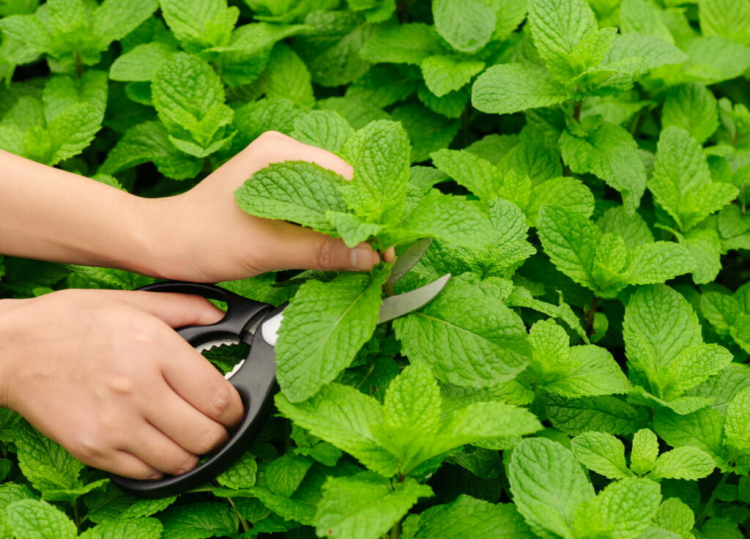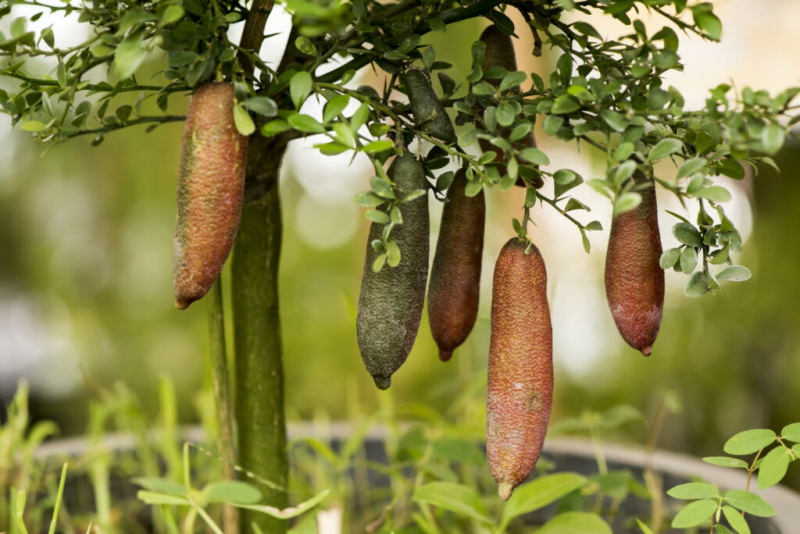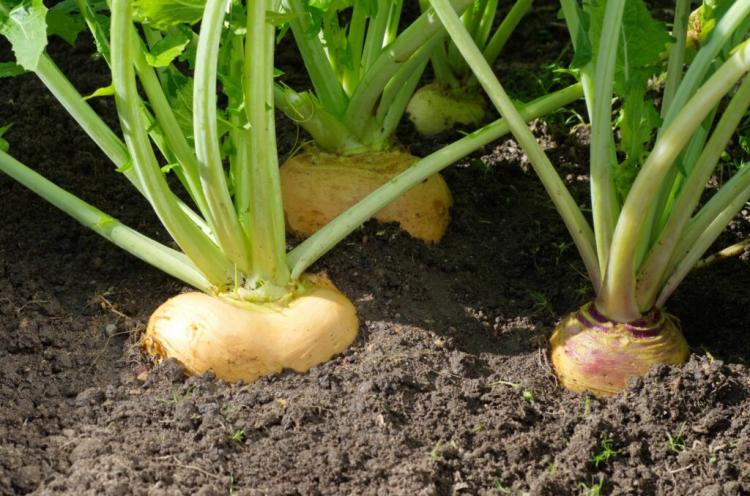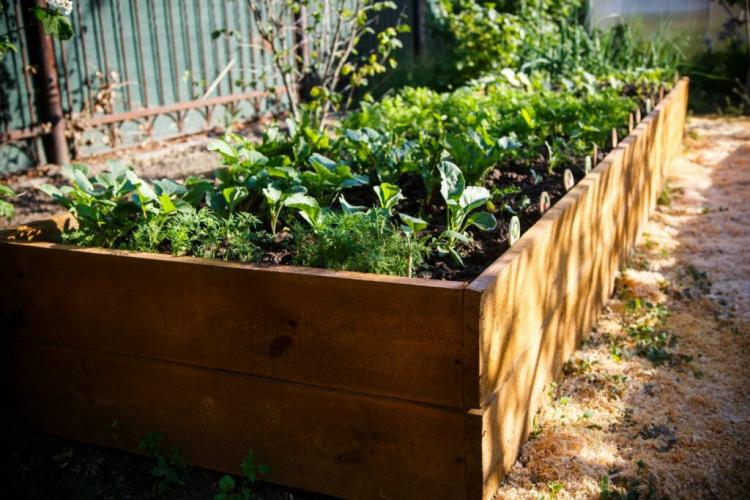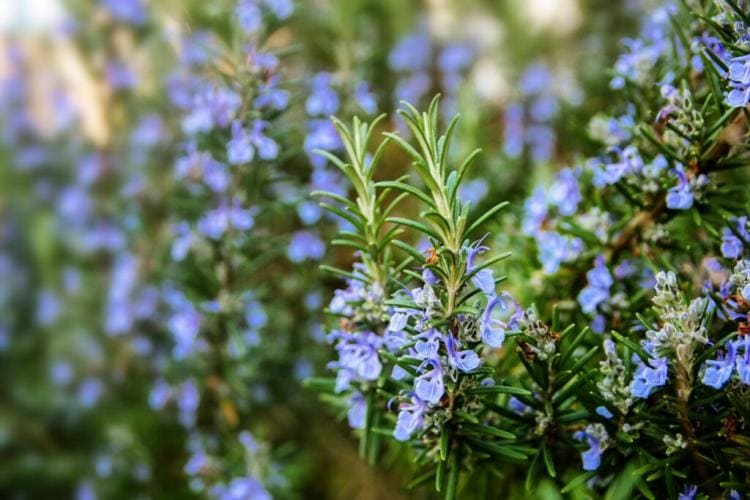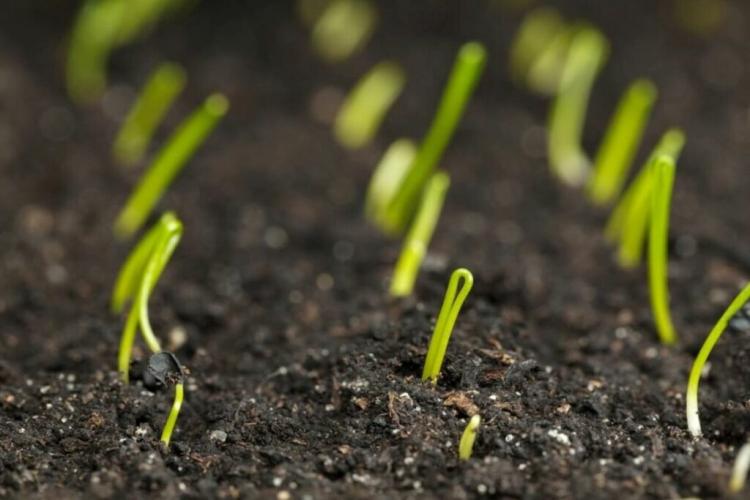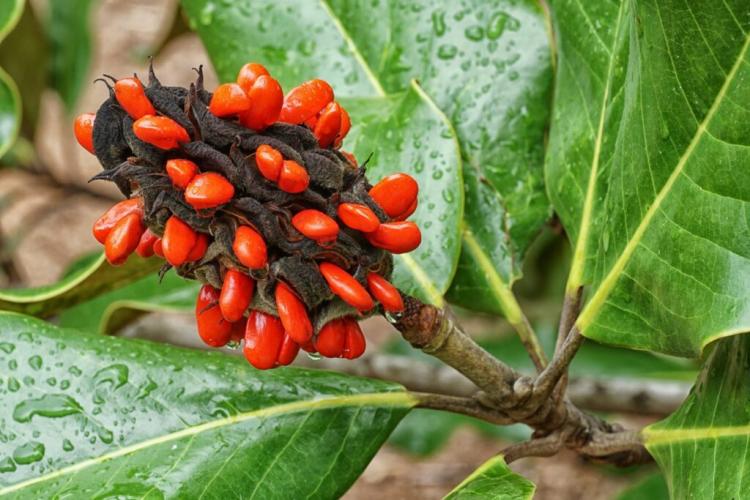Cutting Mint: Timing, Procedure And Flowering
Cutting mint correctly: We show how and when to cut mint correctly and clarify what pruning has to do with the flowering period.
Mint ( mentha ) belongs in every herb garden: The aromatic herb can be used in many ways in the kitchen, it smells and tastes refreshing, and its flowers attract bees and other important pollinators into the garden. The more than twenty different species of mint have two things in common: They belong to the mint family ( Lamiaceae ) and are all fast-growing. Anyone who already has a mint in their garden knows that the vigorous plant cannot be kept in check with the harvest alone. Therefore regular pruning is necessary. How to do this without harming the mint, see this article.
Why should you cut mint?
Table of Contents
First, you cut mint to harvest the leaves or stems of the plant. Another important reason for pruning is the strong growth of the mint. If you want to prevent the mint from overgrowing all other plants in the bed or pot, it must be pruned regularly. Preserving the wonderful mint aroma can also be a reason for cutting. Because when the plant begins to bloom, the aromatic scent and taste of all parts of the plant will noticeably evaporate. Hence, it makes sense to control the flowering by pruning. Last but not least, a second flowering of the mint can be made possible through a targeted cut. This way, bees, and other insects can still find food in autumn and the flowers will decorate your garden again.
Summary: why cut mint
- For harvest
- Control and limit growth
- Preserve aroma
- Enable a second bloom
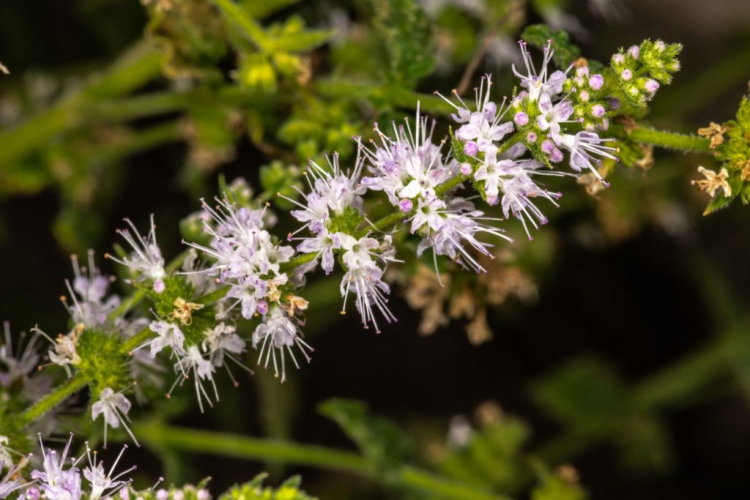
When does the mint bloom?
Mint can bloom in the garden or pot from June to September. There are two flowering times. The first flowering (if it is not prevented by pruning early) is from the beginning of June to the end of July. If the plant is cut back early, your mint can bloom a second time. The later flowering time of the mint is from the end of August to the end of September.
An overview of the flowering period of mint:
- The flowering period from June to September
- First flowering: the beginning of June – end of July
- Second flowering: late August – late September
You might so like: Propagating Fuchsias: Cuttings And Sowing
The right time to cut mint
When should you cut back your mint? In general, it can be said that mint is very easy to cut and can generally be cut back at any time. However, it is wise to choose the timing strategically so that you can harvest more aromatic leaves and encourage new growth. We, therefore, recommend two cuts a year – apart from the normal harvest, of course.
The first pruning is best done in June, just before the mint starts to bloom. This will prevent the aroma from being lost through flowering. The second cut then takes place in late autumn (November) after the late flowering. In this way, you prepare the plant optimally for winter and avoid further spreading.
Summary: when to cut mint?
- Generally possible at any time
- Ideally twice a year
- In June: just before the first flowering
- In November: after later flowering
- If self-sowing is not desired: Before the second flowering at the end of August
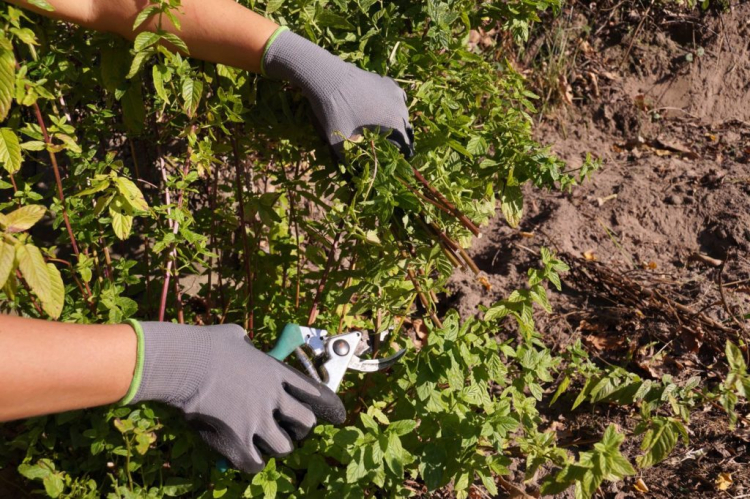
The correct way to go about cutting mint
It is best to use a sharp knife or scissors to cut your mint. The first and the second cut differ slightly from each other: the first cut is a little more moderate than the second. Use a knife or scissors to cut off all of the stems of the plant. Leave the stems an inch or two above the ground so that at least one pair of leaves remains on the stem. This will allow the mint to sprout again and allow you to harvest again.
You might so like: Ordinary Viper’s Bugloss: A Portrait Of The Echium Vulgare
The second cut is then radical pruning: With a knife or scissors, the entire plant is cut back just above the ground.
Mint cutting: step-by-step instructions
- Use a sharp knife or scissors
- First cut: moderate cut back
- Leave at least one pair of leaves above the ground
- Mint sprouts again
- Second cut: cut back radically
- Cut back the entire plant just above the ground
